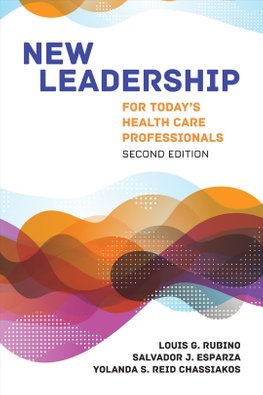New “High Potential Scheme” to develop future healthcare leaders.![]()
A new national scheme that seeks to develop the next generation of leaders in the NHS is being piloted across Staffordshire and Stoke-on-Trent.
Excerpt: “Recruits to the scheme will gain practical leadership experience in a range of roles and settings, alongside strategic experience through assignments and projects. They’ll also work with a career coach to design a bespoke development plan that supports them to achieve the knowledge, skills and behaviours they need to become outstanding, compassionate and inclusive senior leaders across health and care.”
More detail on the High Potential Scheme here Key dates below
- Applications open: 29 July-8 September 2019
- Confirm scheme eligibility: 23-27 September 2019
- Complete on-line potential diagnostic: 30 September-20 October 2019
- Face-to-face assessment: Date to be confirmed, but will take place during window of 28 October-15 November 2019
- Notification to applicants of assessment process outcomes: 9-20 December 2019
To find out more about the High Potential Scheme please email highpotentialscheme@combined.nhs.uk or call 0300 123 1535 ext 2656 or 2774.
The core of care: Dame Donna Kinnair on bravery in leadership and the nursing workforce![]()
The King’s Fund podcast, 30th August 2019
Dame Donna Kinnair, Chief Executive and General Secretary of the Royal College of Nursing, sits down with Helen McKenna to talk about nursing, workforce pressures and her leadership journey.
Professionalism and Cultural Transformation (PACT) toolkit![]()
NHS Employers
20th August 2019
The Professionalism and Cultural Transformation (PACT) toolkit aims to educate and empower staff to improve professionalism within their workplace, helping organisations move towards making the NHS the best place to work.The toolkit is based on tried and tested work undertaken by Hull University Teaching Hospitals NHS Trust and is designed to help managers embed the PACT programme in their organisation. It contains practical information, advice and solutions to equip staff to deal with unprofessional attitudes and behaviours in the workplace. The PACT programme has four steps which should be followed in sequence.
- Step 1: Assess your current culture
- Step 2: Determine levels of professionalism
- Step 3: Action plan and management
- Step 4: Evaluate
Read the toolkit and find out how your staff can “make a PACT” to take positive steps to improve the culture of the organisation.
Inclusive leadership: how ready are we to learn?![]()
Blog post
The King’s Fund website
Jolliff, T, National Director of Inclusion, NHS Leadership Academy
8th August 2019
Excerpt: “Organisations need to be clearer about leadership accountability, with the ‘lived experiences’ of their own staff being the most important indicator of inclusion at organisation, department and team levels. Great quality, evidence-based, life-long inclusive leadership development and support for leaders should also be a given and, most importantly, those who understand and experience exclusion, should be leading initiatives to bring about change across HR, organisational development and all other functions. Focusing change strategies around the knowledge created by lived experience is the only approach that can ensure that inclusion initiatives are relevant, effective and sustainable.”
Should there be a regulator for senior leaders in the NHS?![]()
NHS Confederation, 23rd July 2019
Excerpt “The Kark review sought to establish why the fit and proper person test (FPPT) for directors was not being applied effectively. It builds on the legacy of the Francis report, which called for greater regulation of NHS board-level directors. This briefing looks at the recommendations of the review and gives our initial assessment.”
Royal Pharmaceutical Society elects first ever female president![]()
Sandra Gidley has been elected the new president of the Royal Pharmaceutical Society (RPS).
18th July 2019
One of her priorities is “driving greater inclusivity”.
How doctors in senior leadership roles establish and maintain a positive patient-centred culture![]()
Research Report for the General Medical Council, published 14th August 2019
Dr Suzanne Shale
Key findings
Excerpts: “This independent research set out to explore the lived experiences of doctors in senior leadership roles, their leadership journeys, the everyday challenges, and what they see as their role in shaping their organisation’s culture. It asked what positive culture means to senior leaders and how they recognise when a positive culture is present or absent. It also examines what they try to do to build or sustain a positive culture, or where they identify a negative culture is in place, how they try to change this.”
“Suzanne Shale, a medical ethics consultant, found that positively-engaged leaders, from diverse backgrounds, are key to transforming organisational cultures. However, they are often unprepared and unsupported for the challenges of leadership during the early stages of their management careers.” “Particular challenges highlighted in the research included balancing competing priorities and demands, focusing on people and culture rather than tasks, and recognising and tackling problematic subcultures.”
10 Quick Reflections on…Digital leadership in the NHS ![]()
NHS Providers, Vijayaraghavan S and Harrison J
23rd July 2019
Investing in chief allied health professional roles: insights from trust executives
Published 18th July 2019![]()
…”shares the findings from a project commissioned by NHS Improvement to gain insights from executives who have a chief AHP within their Trust, particularly on the drivers, impacts and challenges of implementing these roles. The guide provides
- questions for trusts to consider about the potential benefits and common barriers to developing AHP leadership
- key insights as to how those organisations are benefiting from dedicated chief AHP leadership, as well as the perceived challenges”
How to lead and manage better care integration guide![]()
Free download from SCIE website after registering for a SCIE account
Social Care Institute for Excellence
Primary Care Network Clinical Director Leadership Programme![]()
Programme Handbook 2019
Excerpt: “The Queen’s Nursing Institute has developed a bespoke programme for the role of Primary Care Network (PCN) Clinical Director based on the very successful executive leadership programmes we deliver. As an organisation we are focussed on leadership and encouraging nurses to influence strategically the way in which patients are cared for in the community. We view the PCN Clinical Director role as an ideal opportunity for nurses to be able to influence decision making and to shape primary care services as part of the NHS Long Term Plan (2019). It is anticipated that the first cohort will consist of 18 participants newly appointed to the role and they will be from a variety of clinical backgrounds, including General Practice Nurses and General Practitioners. Indeed, it is vital that this is a programme which reflects all the clinical backgrounds of those in the PCN Clinical
Director positions. This document outlines the programme aim, learning outcomes, structure and content for the Primary Care Network Clinical Directors Leadership Programme.
A&E complaints drop in Belfast after nurse leadership training![]()
Nursing Times, 13th August 2019
Excerpt :”A hospital trust in Northern Ireland says it has seen a fall in complaints in accident and emergency care following the introduction of a new training programme for senior nurses.”
Annual NHS IT Leadership Survey 2019 (4th year) – key findings![]()
Digital Health Intelligence website says “Interoperability named highest priority for NHS IT chiefs two years running”
Excerpt: “The 2019 survey had 186 responses from NHS IT leaders, drawn from Digital Health Networks, the community of CCIOs and CIOs. Responses covered leaders from acute, mental health and community trusts, primary care organisations, clinical commissioning groups, commissioning support units, together with NHS organisations in Scotland, Wales and Northern Ireland.”
Past Future Reflect![]()
NHS Employers
13th August 2019
Excerpt from website : “This short briefing takes stock of the recent policy developments and future strategic direction for the shape and education of the NHS workforce, against three areas: alternative training routes, new and extended roles and nursing education. We also try to stimulate further thinking on these new and emerging options, such as apprenticeships or new roles, as enablers to the establishment of our future workforce.”
Editorials from the Faculty of Medical Leadership and Management:
Research, evidence and practice – where next? ![]()
25th July 2019
Excerpt: “An important step in the Faculty’s pursuit of excellence through research is the development of the next iteration of the FMLM research strategy. This will define our plans to grow original healthcare leadership research in collaboration with academics, practitioners and institutions. We will identify research questions which are either inadequately or not addressed by the current literature. We have started interviewing leading academics across the UK to collate their opinions and recommendations and explore potential partnerships. But we are also keen to hear from you, our members and fellows, about the leadership areas that warrant more research. All views are welcome! Additionally, we would be pleased to hear about any relevant research you may be conducting and wish to share with the wider FMLM community, by emailing: kirsten.armit@fmlm.ac.uk.”
Medical leadership – an evidence-free zone?![]()
30th May 2019
Excerpts: “The UK needs to be known just as much for its research into leadership and development as it is for clinical medicine.”
“Another interesting difference from the academic, biomedical world is that most studies of healthcare leadership are conducted by academics outside of the clinical and managerial professions. They may, therefore, be forgiven for studying areas which interest them but may not be easily transferable into operational management and leadership, and often deliver conclusions which fall short of the necessary detail and direction for implementing change.” “What research there is poses some uncomfortable truths and some uncomfortable questions for those within and immediately ‘adjacent’ to the profession. Dr Goodall’s findings of a quality advantage of medical chief executives sits uncomfortably alongside the profession’s reluctance to step up to the plate, the NHS’s inability to attract and train doctors for the most senior leadership roles and organisations which continue to appoint a majority of non-clinical and non-medical chief executives. Research on medical leadership is sometimes (unhelpfully) extrapolated to implying an identical effect for other clinical professions. Action should be based on the available evidence and further research – for example into other clinical professions – encouraged where evidence is lacking.”
Clinical Audit Leadership Summit 2019![]()
https://www.healthcareconferencesuk.co.uk/conferences-masterclasses/clinical-audit-leadership-summit-2019
Topics Include:
• Clinical Audit driving Improvement
• Patient involvement and leadership in Clinical Audit
• Developing your skills in Clinical Audit Leadership
• Leading change based on local or national clinical audit findings
• Assessing Clinical Audit Practice: how CQC uses national clinical audit to support quality
improvement through monitoring and inspection
• Using a human factors approach to change practice as a result of clinical audit findings
• Clinical audit and board assurance
• Ensuring clinical audit leads to changes in practice
Journal articles
Putting leaders in a bad mood: The affective costs of helping followers with personal problems![]()
Lanaj K and Jennings RE
J Appl Psychol. 2019 Sep 2.
Navigating a role transition: How to use your nursing leadership skills in a new career chapter![]()
Valerie Kiper
Nursing Management 2019, 50 (9): 49-52
Healthcare then and now: Impact on nursing leadership![]()
Devin Bowers, Caryl Goodyear
Nursing Management 2019, 50 (9): 26-29
Linnander E, Nolna SK, Mwinsongo A, Bechtold K, Boum Y.
Lancet Glob Health. 2019 Sep;7(9):e1177
Listening to Understand: A Core Leadership Skill.![]()
Baker EL, Dunne-Moses A, Calarco AJ, Gilkey R.
J Public Health Manag Pract. 2019 Sep/Oct;25(5):508-510
Story Circles, Changing Culture, and Deepening Leadership.![]()
Martinez CC.
New Dir Stud Leadersh. 2019 Sep;2019(163):57-71.
Reimagining Leadership Development for Social Change Through Critical Dialogue Practices.![]()
Nagda BRA, Roper LD.
New Dir Stud Leadersh. 2019 Sep;2019(163):117-136
Consumer and carer leadership in palliative care academia and practice: A systematic review with narrative synthesis.![]()
Scholz B, Bevan A, Georgousopoulou E, Collier A, Mitchell I.
Palliat Med. 2019 Sep;33(8):959-968




